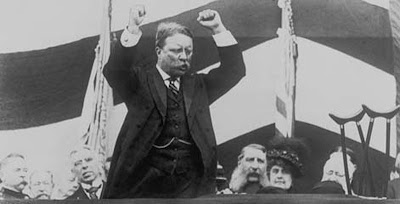Are you really a Christian? I mean,
really. You may answer yes, but Changing the Face of Christianity reserves the right to disagree. They have constructed this
very scientific quiz to determine just who makes the grade and who doesn't. (Though, rest assured, "This index is not intended to pass judgment on you. Instead, use it as a gauge of how well you reflect Jesus Christ both internally and externally.") There are four categories of classification: far from Christ, worldly Christian, good Christian, and spiritually mature. I am ashamed to admit--so deeply, deeply ashamed--that, upon completing rigorous ten question assessment, I just barely made the cut for "good Christians."
Now normally I am a wise enough person not to put much stock in the results of online quizzes. (I lost all faith after
Quibblo told me I was a Ron when I am clearly a Hermione...a very manly Hermione.) Unfortunately, however, this quiz seems to actually be
making news--or at least popping up regularly in my news feed from a variety of sources--with its claim that one out of every three professed Christians in America actually falls into "worldly Christian" or below category. According to Changing the Face of Christianity founder R. Brad White, people in this group have admitted through his test that "they rarely live the teachings of Jesus Christ."
Of course, the biggest problem with this project is the nonsensical idea that one can quantify Christianity on a multiple choice quiz. Perhaps in an age when there were fixed, catholic formulas for orthodoxy (and such an age exists only in the ignorant imaginations of nostalgic minds) that sort of cut-and-dry ten question litmus test might fly, but who is and isn't a Christian becomes much more difficult in the real world. What we have today, and have always had, is more of an ethical sampler platter where we can all identify Christian positions and non-Christian positions, but for the most part we can also all recognize that there is a tremendous field of uncertainty where confident categories cannot be widely agreed upon.
Consider this example, the first question on the quiz:
1. When someone recklessly cuts you off in traffic, do you:
- Say or "gesture" angrily at the other driver
- Not get angry, but think about what COULD have happened to you and your passengers
- Thank God you weren't hurt, and pray for the safety of other drivers
- Control your tongue/temper, but think angry thoughts
I'll go ahead and admit that as often as not what I
actually do is the fourth option. What I strive for, given the options presented, is the second answer. I think it is probable, though they do not offer an answer sheet for those who have completed the test, that the "correct" answer is to thank God and pray for the safety of other drivers. Perhaps someone would like to explain to me how someone's spiritual maturity can be called into question because they do not pray for the safety of drivers whenever they get cut off. If we want to talk about living the teachings of Jesus, what he taught us to do is to go into a closet and pray privately. He lived a marvelous example of that in that most (arguably all) of the Gospel references to Jesus praying involve him going off alone to do it somewhere in private. Now if someone, say perhaps me, were to believe that prayer is a more serious matter demanding more gravitas than a few rote words muttered from behind the wheel or that being innocent as doves and shrewd as vipers allows someone to refuse anger and still be cognizant of the dangers presented by reckless driving, such a person might grade the quiz differently, declaring that those who pray every time they're cut off are good but not great Christians. Of course, I would never make a test.
It is possible, of course, that I have improperly inferred the intent of the test creators. Maybe option two really is the "right" one and option three is one of the stereotypes they are trying to combat. Even if that's the case though, the point still stands, because for everyone one who thinks that two is a better answer than three, there are those who think that true Christianity consists in constant, altruistic prayer. And therein lies the main problem with trying to quantify a population's Christianity.
There are of course other problems. The second question highlights it, asking how often you read your Bible but giving no indication of the portion of Jesus' teachings in which he commands Bible reading. After all, how could he, the Gospels not having yet been written during his earthly lifetime? I haven't read my Bible today. I don't think I read it yesterday or the day before. I'd like to believe that doesn't negatively reflect the strength of my faith or on my conformity to Christian ethics. That isn't to say that Bible reading is worthless. It isn't. It isn't to say I'm entirely satisfied with the amount of time I spend refreshing my memory about the teachings of Christ. I'm not. It is to say that cracking the spine of your Bible is not a magical means to faith nor is it a measure of faith. If I don't read it "Throughout the day, only missing occasionally," it isn't because I'm not living the teachings of Christ. In fact, I wonder how someone who spends so much time reading the Gospel has any time to live it at all.
There are innumerable problems with the quiz presented, but one more merits mention. The good people at Changing the Face of Christianity ask test takers how much time they spend worrying, with the implication being that worry (according to Matthew 7) is something Christians are commanded not to do. That's true, of course. The perfect Christian (perfect as your heavenly Father is perfect Christian) does not worry. Yet, the presence of worry does not necessarily indicate spiritual immaturity, in less you take that in an absolute and therefore meaningless sense. Think of the heroes of faith, the biblical characters that I hope R. Brad White wouldn't think of calling anything but spiritually mature, who have worried about the mundane things of life, doubted providence, and argued with God. One might even say that there is worry--or, if you prefer, anxiety--present in the garden when Jesus is praying (off alone, at a distance from his disciples *wink wink*). Later, the testers ask how often you do things privately of which you might be ashamed. Paul, who thinks himself mature enough to comment on the spiritual maturity of others, admits struggles against the baser instincts of his own flesh. Our inclination to hagiographical excess to one side, it is perhaps time we all admitted out loud that, recorded or not, it is safe to assume that our biblical heroes all sinned, even after they were redeemed in Christ.
Here we come back to an essential problem, one perhaps even more foundational than our own ethical uncertainty and tendency toward qualified pluralism. The very attempt to classify Christians in this way fundamentally misunderstands the sanctification process. Our lives are not about achieving a state of spiritual maturity. Spiritual maturity is the carrot dangled in front of us which we pursue but never achieve because perfection is an infinite virtue and not attainable concretely by finite beings. The people at Changing the Face of Christianity have some admirable goals. "Their mission is to reverse Christian intolerance, hypocrisy, homophobia, judgmentalism, and other negative Christian stereotypes, by helping Christians to be more like Jesus Christ." That's great and should be incorporated into the mission statement of every local church. Still, even if the questions were more exhaustive or more carefully chosen or if they could actually find an answer which all Christians could agree was right, it still would be a failed endeavor because the categories that matter on continuum of spiritual maturity are not qualifiers which range from worst to best. The real issue of consequence is progress versus stagnation. I feel more spiritual kinship with the angry, foul-mouthed, bigot who fights and fails to change his acknowledged flaws than the elder's wife who donates all her time to charity but confuses contentedness in her righteousness with contentedness in the saving graces of God.
But maybe that's why I failed the test.





